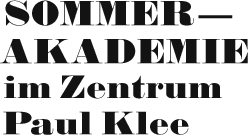18 August 2014, 21.00h
Assembly Agency
Assembly (HR)
The modern concept of intellectual property relies fundamentally upon the assumption of a division between the categories of “nature” and “culture”. However, for many art practices such a split is impossible to make. For the lecture entitled Assembly (HR) at Paul Klee Zentrum in Bern, Agency calls forth a 'thing' from its 'list of things' speculating on the question: “How can commons become included within artistic practices?” Agency will focus for HR on randomness. Expressions that are indeterminate in a random way are often not considered original but common by copyright law. Copyright law defines originality as something more “than a merely trivial variation, something recognizably own to an author”. During Assembly (HR) at Paul Klee Zentrum in Bern, Agency proposes to invoke the controversy Thing 001037 (R&R part numbers) in order to bear witness. Thing 001037 (R&R part numbers) concerns a conflict between Toro, a manufacturer of grass mowing equipment and R&R, a manufacturer of replacement parts, concerning six digit part numbers. In order to be compatible, R&R refers in their sale catalog to the Toro part numbers, except that an "R" precedes the number. Toro claimed that R&R used their numbers. During the court case Toro v. R&R at the United States Court of Appeals in 1986 judge Timbers had to decide if the random numbers by Toro could receive the status of an expression protected by copyright, like a work of art.
Short bio:
Agency is a Brussels-based initiative that was founded in 1992 which constitutes a growing list of things that resist the split between the classifications of nature and culture. These things are mainly derived from controversies around intellectual property. Agency calls things forth from its list via varying assemblies. Every assembly explores in a topological way the operative consequences of the apparatus of intellectual property for an ecology of art practices and pay attention to different agencies.





